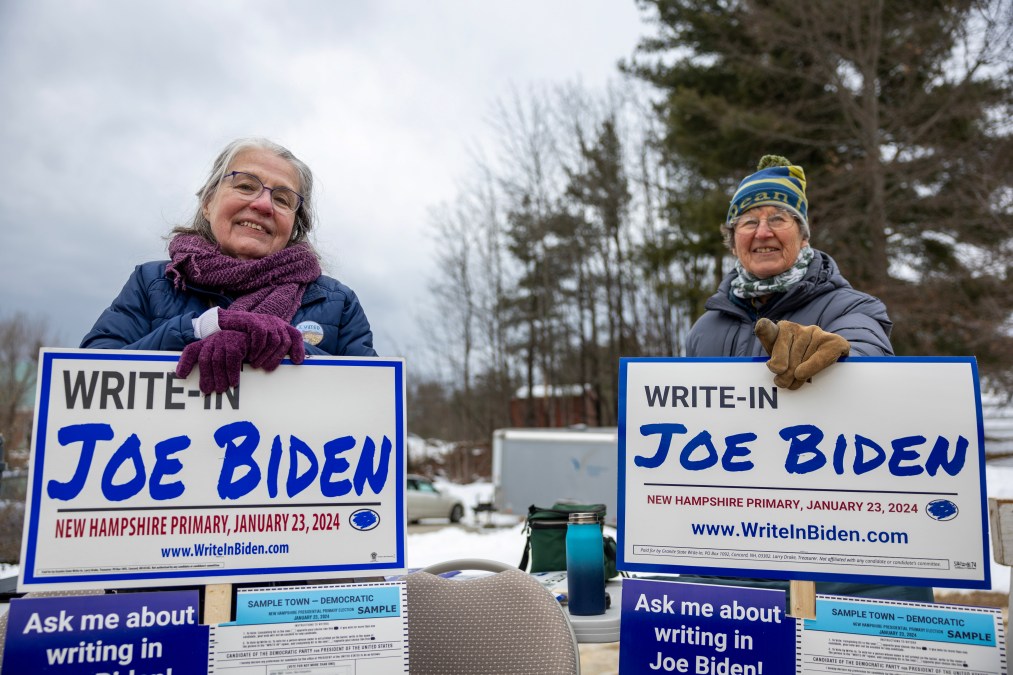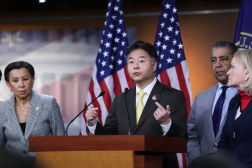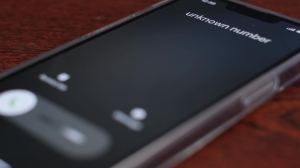New Hampshire voters sue operative, companies behind Biden AI robocall

Three New Hampshire voters and the nonprofit League of Women Voters filed a civil suit Thursday against a number of individuals and companies allegedly behind a January robocall featuring the AI-generated voice of President Joe Biden that urged Democratic state primary voters to stay away from the polls.
The complaint, filed in the U.S. District Court of New Hampshire, argues that the robocall was an illegal attempt at voter suppression, citing federal and state laws including the Voting Rights Act and the Telephone Consumer Protection Act. The plaintiffs are seeking to enjoin the political consultant Steve Kramer, who has admitted paying for and orchestrating the calls, and two firms that are alleged to have helped distribute them, from carrying out similar campaigns in the future.
The suit also seeks to levy $500 fines on the defendants for each call made; law enforcement and industry robocall tracing groups have said the calls were sent to thousands of New Hampshire voters.
The plaintiffs say their aim is to deter similar AI-enabled robocalling schemes. Lawyers representing the plaintiffs argued in a press briefing Thursday that the robocall was illegal and that while savvier voters may not have fallen for the scam, it could have dissuaded less experienced and first-time voters from exercising their right to cast a ballot in the primary. The calls impersonating Biden spoofed the cell phone number of Kathy Sullivan, a former New Hampshire Democratic Party official who was leading a super PAC behind a primary write-in campaign for the incumbent president.
“What does it mean for them to hear the president’s voice, from a phone number associated with a trusted political figure saying ‘you have to choose if you vote today, you can’t vote in November, so save your vote,?’” said Courtney Hostetler, senior counsel at Free Speech for the People and part of the legal team behind the suit. “That’s a scary call to get, so maybe these voters play it safe, maybe they don’t vote in the primaries.”
The New Hampshire Attorney General’s office alleged that Walter Monk, the owner of Life Corporation and a tangled web of political marketing and robocall companies, and Lingo Telecom, a carrier, were responsible for disseminating the call to voters. While Life Corporation is named in the suit, Monk is not.
The Federal Communications Commission and law enforcement authorities in New Hampshire and North Carolina have accused Lingo Telecom of facilitating potentially illegal or fraudulent robocalls in the past. An FCC letter sent to Lingo last month indicates that the telecom signed off on an “A-Level Attestation,” denoting the highest possible level of confidence in the authenticity of the party behind the calls, which spoofed the cell number of Sullivan’s husband.
NBC News last month identified Kramer, a longtime Democratic operative contracted by Dean Phillips’ presidential campaign, and his political consulting firm Get Out the Vote, as responsible for creating the deepfake audio of Biden with the help of street magician Paul Carpenter.
In follow-up interviews with media outlets, Kramer acknowledged creating the robocall and claimed that it was an attempt to shine a light on how the technology could be abused to threaten the integrity of U.S. elections. The lawsuit notes that Kramer only described the calls as an awareness-raising effort after Carpenter disclosed to NBC News the role that he and Kramer played in the operation.
Mark Herring, counsel for Akin Gump Strauss Hauer & Feld LLP, another law firm representing the plaintiffs, said Kramer’s claims seem “self-serving” and a legal defense “we’ll certainly be testing” in court.
Sullivan told CyberScoop she does not believe Kramer orchestrated the robocall for altruistic purposes and hopes the lawsuit prevails.
“Kramer’s claim that he did this to show the danger of AI is ridiculous. He went out of his way to cover his tracks, including spoofing my number, scrubbing his Facebook page, telling [Carpenter] to scrub his emails, and trying to intimidate people from taking action against him,” Sullivan said in a text message. “I hope the next thing we hear is that the [New Hampshire Department of Justice] is indicting him.”
Notably, all three of the New Hampshire voters behind the new lawsuit appeared to have recognized that the call was fake.
According to court documents, James Fieseher “immediately recognized the voice of President Biden and assumed the call was coming from [his] campaign.” After listening for “15-20 seconds” he realized the call was not legitimate and hung up.
Another plaintiff and New Hampshire voter, Nancy Marashio, believed the voice sounded genuine but knew from past participation in the New Hampshire League of Women Voters that the content of the message “did not make sense.” Voting in a primary has no bearing on the ability of registered voters to cast a ballot in subsequent general elections. Nevertheless, she claimed voters without her background would fall for the message.
The suit claims the incident has forced organizations like the New Hampshire League of Women Voters to expend significant resources to develop guidance and staff training on how to track robocalls, as well as voter education campaigns and other monetary costs to prepare for and respond to the calls.
The New Hampshire robocalls served as one of the first concrete examples of deepfake audio being deployed to potentially suppress voting in a U.S. election. Both New Hampshire and federal authorities are investigating the incident, and the FCC unanimously ruled in February that AI-enabled robocalls like the one carried out in New Hampshire are illegal under the Telephone Consumer Protection Act.
Messages to reach Life Corporation and Lingo Telecom were not immediately returned. In a LinkedIn direct message, Kramer referred CyberScoop to Hank Sheinkopf, a spokesperson who said in an email that Kramer’s lawyers had yet to receive the lawsuit and otherwise declined to comment.






